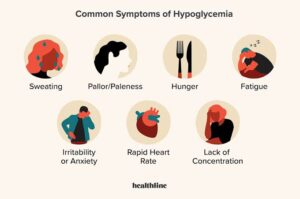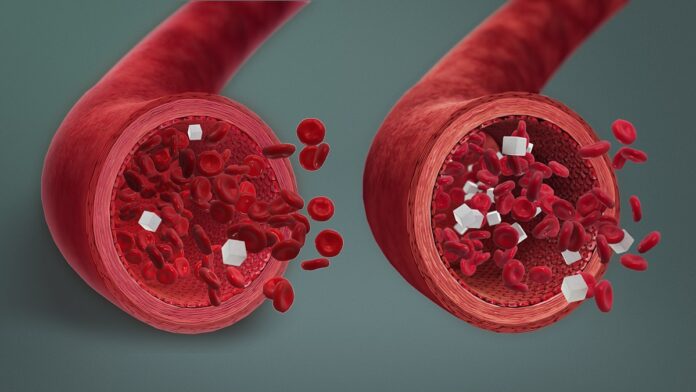Understanding Hypoglycemia: Causes, symptoms, and life-saving treatment, by Maryam Sulaiman
Hypoglycemia, often referred to as low blood sugar, occurs when the glucose levels in your blood drop below a healthy range. While it is most common in individuals with diabetes, particularly Type 1, hypoglycemia can affect anyone and requires immediate attention.
When blood sugar falls too low, the body experiences a range of warning signs, including shakiness, dizziness, and a rapid heartbeat. For individuals with diabetes, hypoglycemia is usually a result of excess insulin—either from the body’s own production or from injected insulin. However, other factors like certain medications, excessive physical activity, and hormonal imbalances can also contribute.
Recognising the Symptoms of Low Blood Sugar
The symptoms of hypoglycemia can come on suddenly and vary from person to person. Common early warning signs include:

Shaking or trembling
Weakness and sweating
Extreme hunger
Dizziness, lightheadedness, or confusion
Rapid heart rate
Anxiety, irritability, and pallor
As hypoglycemia worsens, it can lead to severe complications such as:
Blurred vision or slurred speech
Difficulty with coordination or clumsiness
Seizures or loss of consciousness
READ ALSO: Is coconut water beneficial for kidney problems, low blood pressure, diabetes?, by Maryam Sulaiman
If left untreated, severe hypoglycemia can be life-threatening, with potential consequences like coma or even death.
In some cases, symptoms can also occur during sleep, known as nocturnal hypoglycemia. Individuals may wake up feeling disoriented or excessively tired, sometimes after sweating through their sheets or experiencing vivid nightmares.
The Serious Complications of Low Blood Sugar
Untreated hypoglycemia can lead to life-threatening complications such as:
Organ failure
Heart arrhythmias
Brain damage
Cardiac arrest
Death
For individuals with diabetes, situations like incorrect insulin dosages, excessive physical activity, or irregular meal timings can increase the risk of hypoglycemia. Pregnant women with Type 1 diabetes are also at heightened risk due to hormonal changes.
Causes of Hypoglycemia Without Diabetes
Hypoglycemia is less common in people without diabetes but can occur in certain situations. Two main types include:
Reactive Hypoglycemia: Low blood sugar occurring two to four hours after a meal, often due to a spike and subsequent drop in blood sugar from foods high in simple carbohydrates like white bread or sugary treats.
Fasting Hypoglycemia: Although rare, fasting for prolonged periods can sometimes trigger low blood sugar in those without diabetes, typically due to an underlying issue.
Diagnosis: How is Hypoglycemia Identified?
For those with diabetes, the best way to diagnose hypoglycemia is through regular blood glucose monitoring using a glucometer or continuous glucose monitor (CGM). These devices alert users when their blood sugar drops too low, especially during high-risk times like sleep or while driving.
In people without diabetes, doctors may recommend a series of tests to identify the cause, such as the mixed-meal tolerance test (MMTT) or extended fasting with blood sugar monitoring.
Managing Hypoglycemia: What You Need to Know
Treatment for mild to moderate hypoglycemia involves consuming fast-acting carbohydrates, such as glucose tablets, fruit juice, or candy. Severe cases require immediate medical intervention, including the administration of glucagon or emergency medical treatment.
To prevent hypoglycemia, individuals with diabetes can:
Follow medication schedules strictly
Monitor blood sugar regularly
Adjust diet and exercise routines in consultation with their healthcare provider
For those at risk of severe hypoglycemia, it’s crucial to:
Carry emergency snacks or glucose tablets.
Educate friends and family on how to respond to a hypoglycemic emergency.
Keep emergency glucagon on hand at all times.
In conclusion, hypoglycemia is a serious but manageable condition. By understanding the causes, recognizing the symptoms early, and taking appropriate measures, you can reduce the risk of severe complications. Always consult with your healthcare provider to tailor a management plan that works best for you.
Follow the Neptune Prime channel on WhatsApp:
Do you have breaking news, interview request, opinion, suggestion, or want your event covered? Email us at neptuneprime2233@gmail.com





